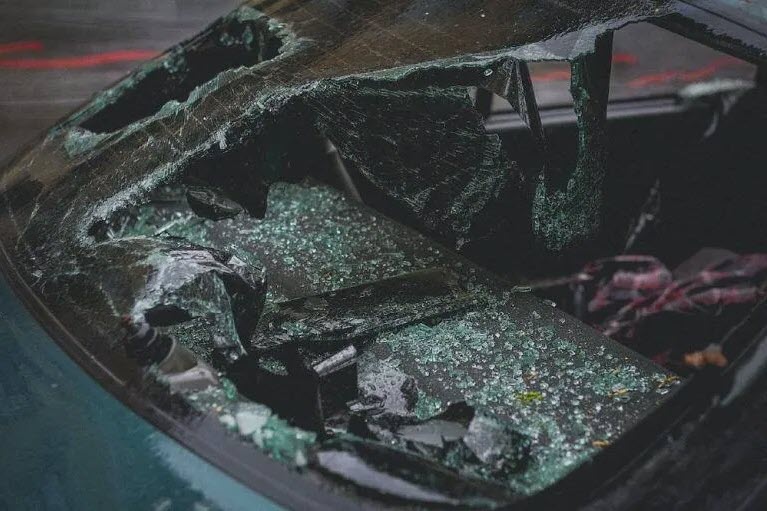Vehicle Accident Check
Enter VIN to unlock vehicle accident records
When purchasing a used car, we’ll want to avoid ones that have been damaged significantly. But in some cases, the sellers or dealers will hide the truth by performing some cosmetics or repairs. To determine a car’s real value and make an informed purchase, you should get a vehicle history report. It will tell you if a car has been in accident and if it sustained a salvage or branded title.
How to check car accident history
Running a VIN check is a simple and effective way to explore a car’s history. VIN (Vehicle Identification Number), a unique 17-digit identifier, traces a car’s history over time and reveals a wealth of information such as the vehicle’s specifications, title status, and odometer reading. The VIN is usually stamped on the dashboard near the windshield or on the driver’s side of the vehicle. Or you can find it on the vehicle’s title and registration document.
If you don’t know the exact VIN, looking up the license plate also works.
License Plate Lookup
Research a Vehicle by License Plate
1. Unlock vehicle history report with BeenVerified
BeenVerified is a powerful all-in-one search engine that gives you instant access to billions of people, vehicle, and property information. By searching with a VIN or license plate, you’ll be able to find a wealth of vehicle records that may impact a car’s value and reliability.
Here’s how to perform a VIN search on BeenVerified.
1. Go to the BeenVerified vehicle search page.
2. Input a VIN and click Search. You could choose license plate search as well.
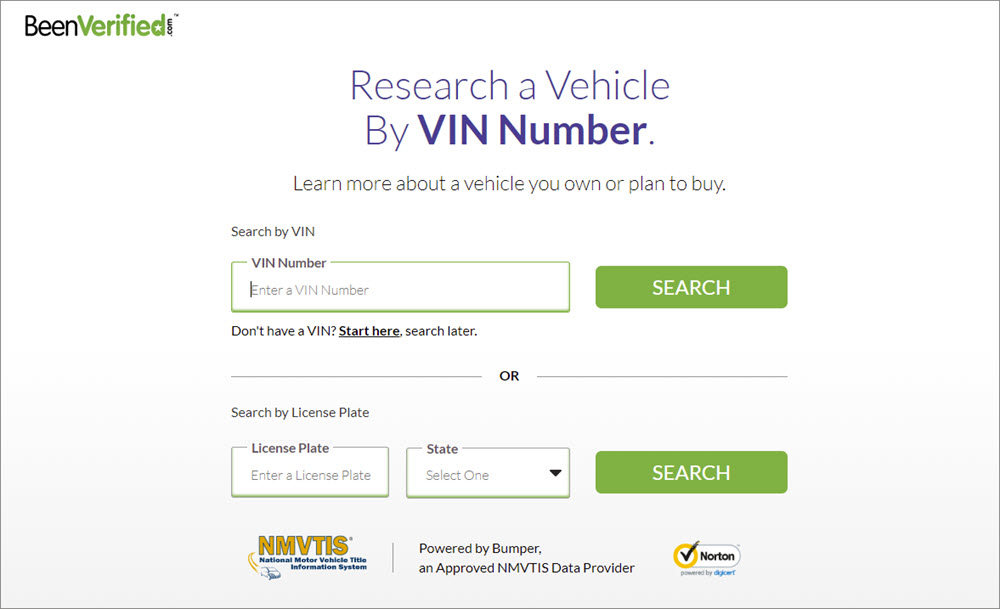
3. Wait until BeenVerified scans the database. Once done, the complete report will show you the vehicle’s owernship history, market value, and potential safety issues you might want to watch out for.
The accident history tracks every accident that the car was involved in. You’ll know when and where the accident occurred, the extent of the damage, what was repaired, and whether the car has been listed in a salvage auction.
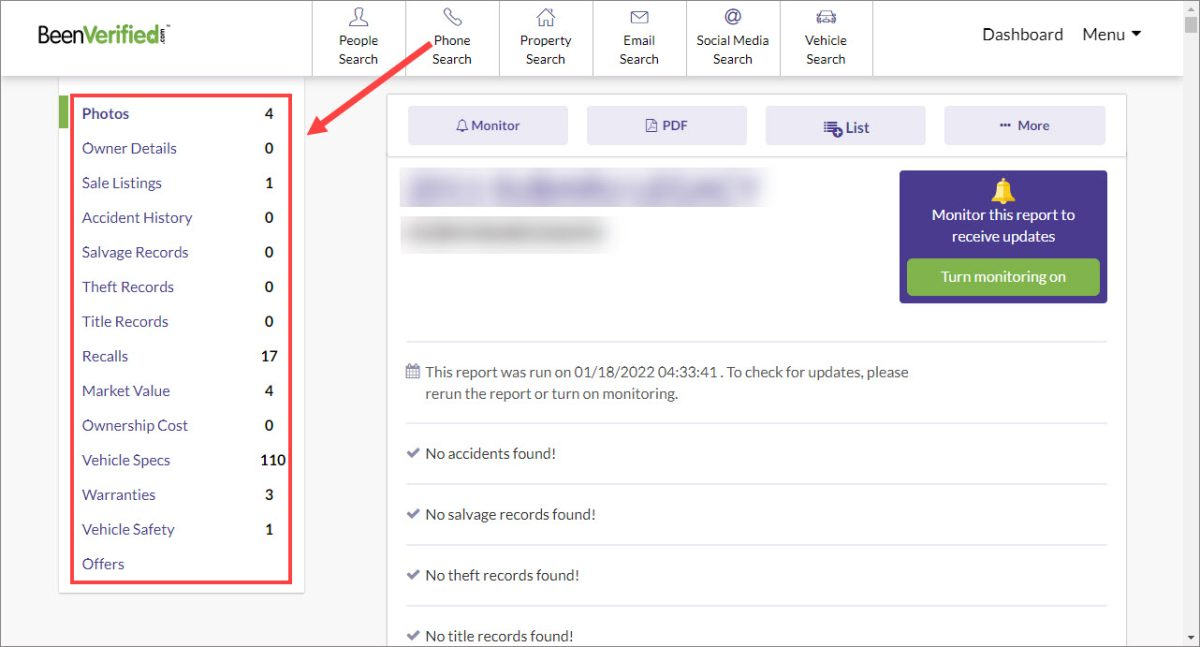
Besides the VIN and license plate lookup, there are other tools like people search, phone number search and address search. They’re super handy when you need to verify the background and integrity of a private seller or someone you met online.
2. Search vehicle records with Bumper
As a well-known online marketplace for used cars, Bumper aims to make car buying and selling hassle-free. It delivers reliable vehicle reports that contain up-to-date information consumers may be concerned about. To request it, you can search by VIN, license plate or the vehicle’s model.
1. Visit the Bumper homepage.
2. Punch in a VIN or license plate number and click Search.
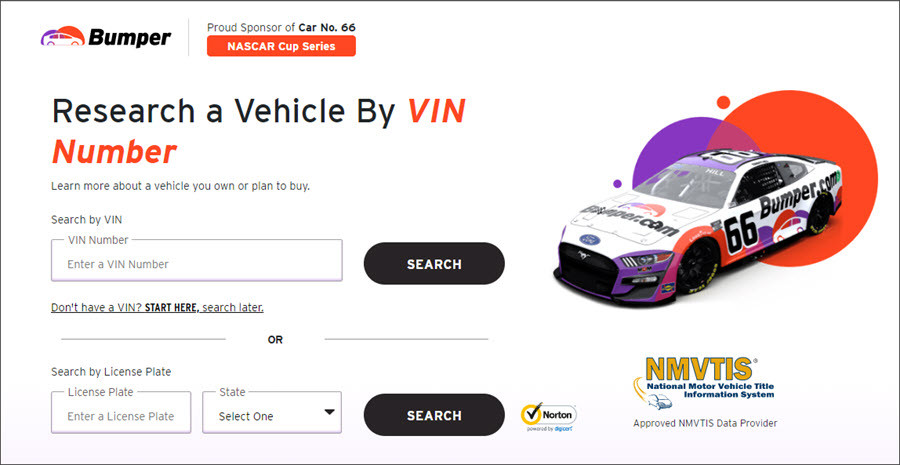
3. From the generated report, you can find as much vehicle history as possible. That includes various points of interest such as:
- Accident history and damage reports
- Title information, and whether there’s salvage or branded title placed on the vehicle
- Standard equipment
- Sales history and the purchase price
- Estimated ownership cost, for fuel, maintenance, and insurance
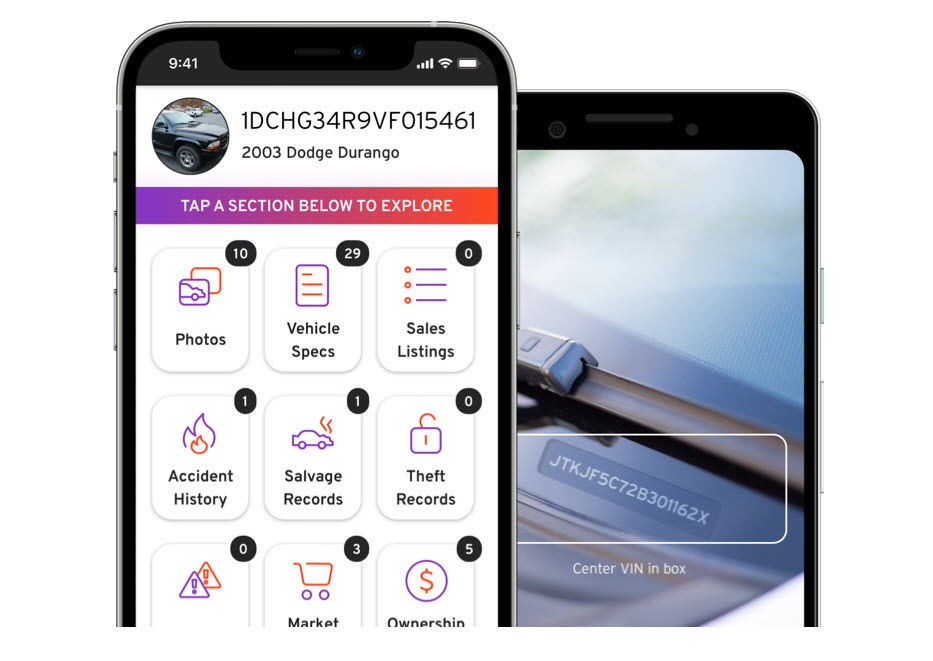
If you’re on mobile, you could download the Bumper app on your Android or iOS device for a more mobile-friendly experience.
3. Access accident report with EpicVIN
EpicVIN is also a trustworthy vehicle history report provider. It scours data from various authentic sources and NMVTIS (National Motor Vehicle Title Information System), the largest vehicle information system in the U.S, to guarantee vehicle history reports of the best accuracy and reliability.
1. Go to the EpicVIN official website. Enter a VIN or license plate to start searching.
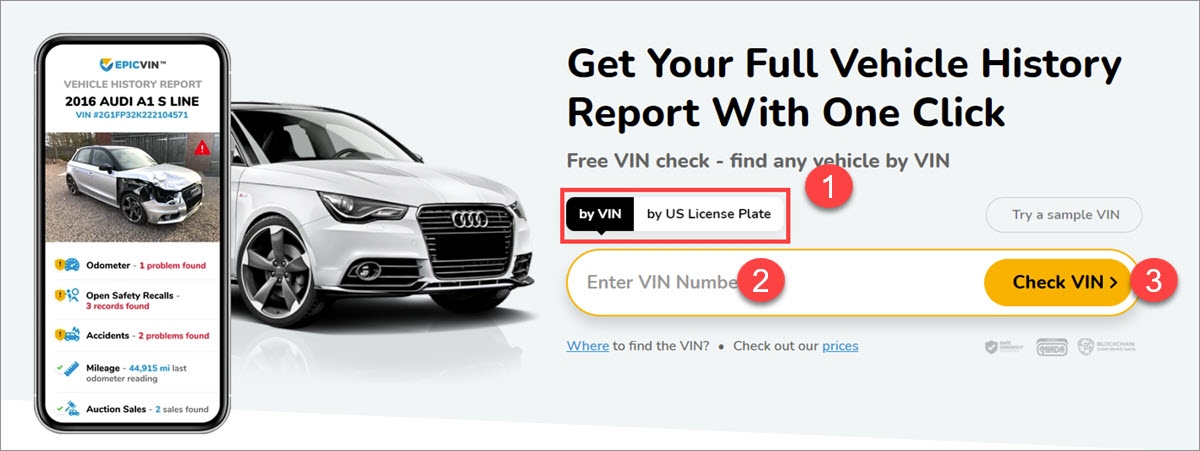
2. EpicVIN will pull up the most precise vehicle information, including accident, lemon, and flood damage history, junk and salvage titles, services records, odometer readings and more. The accident history will report when and where the car has been in accidents, what’s the damage on the car and its severity.
The results are also easy to read, with a short summary of how many records are in each section.
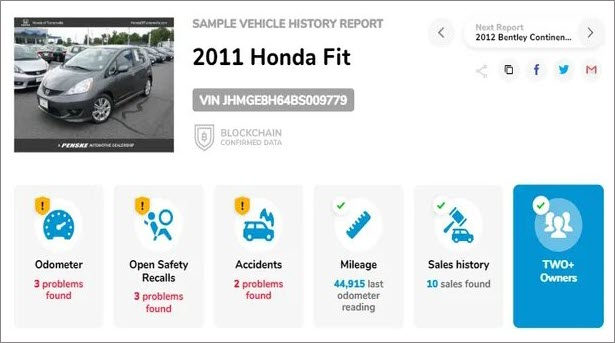
4. Use a free tool
The VINCheck tool of NICB (National Insurance Crime Bureau) is free for the public to use, allowing anyone to search for theft claims and salvage records of a particular vehicle. Here’s how it works.
1. Go to the NICB VIN check page.
2. Enter the VIN number, check the box to agree to the terms and conditions of use, complete the captcha and click SEARCH VIN.
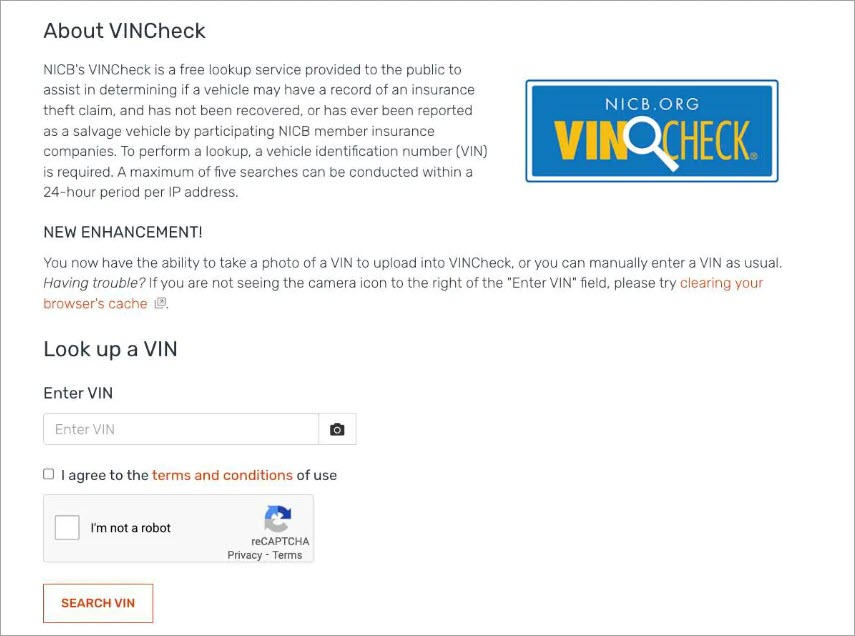
3. It will return relevant data within seconds. If the vehicle has suffered a reported accident and remains unrecovered or declared as salvage, you may see the total loss record.
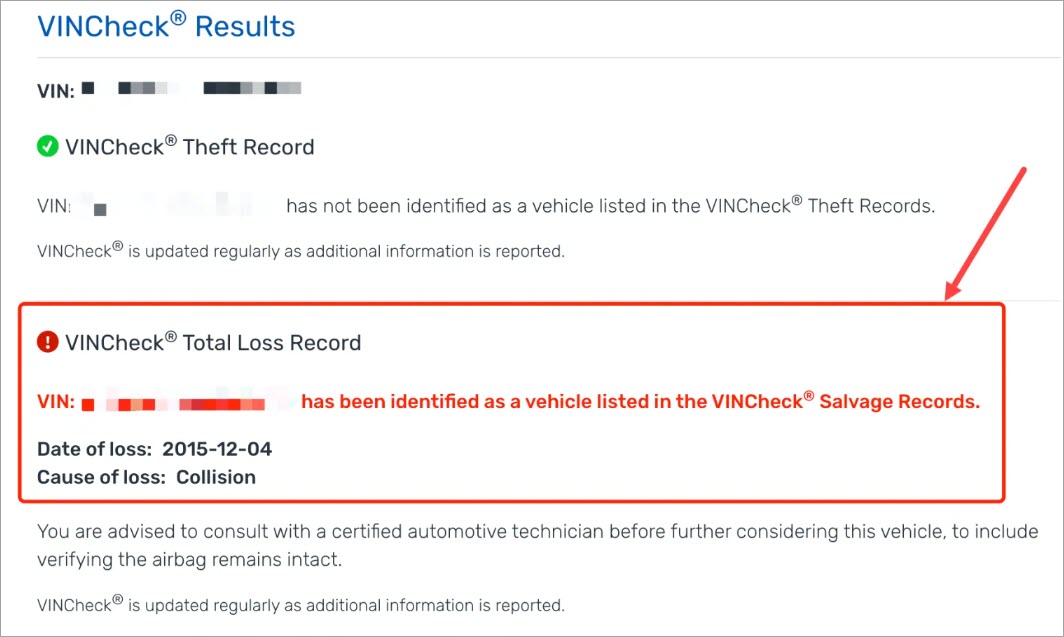
5. Perform a car inspection
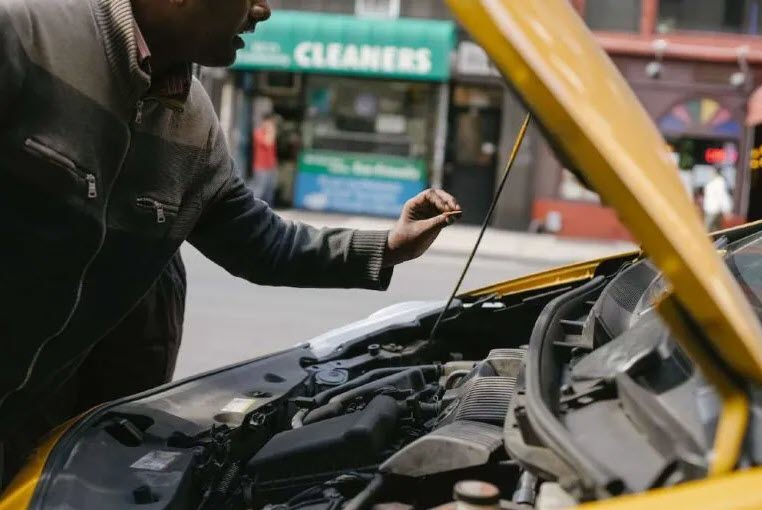
While the VIN report offers a deep insight into a vehicle’s past, it may not be 100% reliable. A clean accident history doesn’t mean the car has not ever been wrecked or repaired. If the accident was not declared with the insurance company, or if the repair was self-paid, it won’t be reflected in the VIN report. So a car inspection should always be the last line of defense before you’re closing the deal.
If you’re familiar with the vehicle specifications, you could do that personally by looking for the visual signs of past damages. Alternatively, you can pay for a local professional mechanic to do a body inspection.
That’s how to check if a car has been in accident. Getting a vehicle report is the most convenient and easiest way to check a car’s accident history. However, not all the accidents will be recorded. So a thorough vehicle inspection is also necessary before closing the deal.
If you have any questions or suggestions, feel free to leave a comment below.




